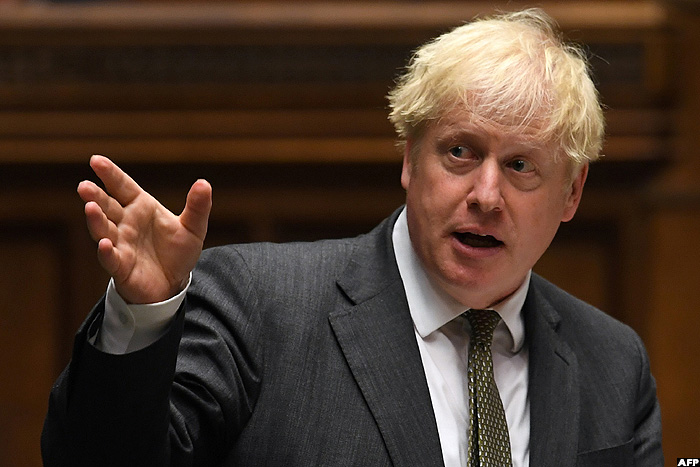Countries pledge $4b for education at global summit
Jul 30, 2021
Once realized, the funding will enable up to 175 million children to learn and help get 88 million more girls and boys in school by 2025.

UK Prime Minister Boris Johnson

Taddeo Bwambale
Journalist @New Vision
Kenya’s President Uhuru Kenyatta and UK Prime Minister Boris Johnson on Thursday (July 29) mobilised over $4b from donors to the Global Partnership for Education (GPE).
The funding commitments were made during the Global Education Summit hosted by Kenya and the UK.
World leaders at the two-day hybrid event including heads of governments, businesses, private foundations and development banks, committed to support children’s education in the world’s lowest-income countries.
GPE, the largest global fund solely dedicated to transforming education in lower-income countries, targets to raise at least $5 billion over the next five years to transform education for millions of the world’s most vulnerable children.
Once realized, the funding will enable up to 175 million children to learn and help get 88 million more girls and boys in school by 2025.
UK Prime Minister Boris Johnson announced his country’s largest-ever pledge of £430 million ($600 million) to GPE, remaining the top bilateral donor to the global body.
“Education is the closest thing we have to a silver bullet to solve a myriad of problems, from gender inequality to climate change, and is one of the surest ways for our countries’ economies to rebound. Ensuring that all children – and especially girls – can get the education they deserve is the smartest investment we can make to ensure we build back better from the pandemic,” he stated.
In addition to the US$4 billion pledged from donors, 19 heads of State and Government committed to spending at least 20% of national budgets on education, rallying behind a political declaration on education financing led by Kenyan President Uhuru Kenyatta.
“I call on my fellow Heads of State to endorse the domestic financing statement and to commit at least 20 percent of your domestic budgets to education,” said Kenyatta.
“This will ensure that we keep our promises to our children to secure their future through quality and inclusive education. “
Over the next five years, the countries endorsing the promise will commit up to $196 billion in education financing, a crucial shield against learning losses due to the COVID-19 pandemic.
Uganda has been one of the big beneficiaries of funding under GPE, including teacher training, education infrastructure and scholastic materials.
The business community and private foundations collectively announced more than $100 million at the Summit.
To major new public-private partnerships were launched to use social marketing expertise to drive up girls’ enrollment in school and strengthen data systems to drive evidence-based improvements in education systems.
“The Global Education Summit has helped put education at the top of the international agenda and highlighted its role in accelerating the fight to end poverty, prevent climate change and improve health outcomes,” said Julia Gillard, GPE Board Chair and former Prime Minister of Australia.
World leaders want countries to continue investing in education by enacting policies and increasing domestic resource allocation to the education sector.
Around 175 million children worldwide are not enrolled in school, despite the proven and lifelong benefits of pre-primary education, according to UNICEF.
Experts at the summit want access to digital learning in lower-income countries to be expanded to provide education and deliver learning opportunities to anyone, anywhere.
Ghanaian President, Nana Akufo-Addo told the summit that his country spends 23% of its budget on education on a rising scale, but also keen to also invest in health.
“To transform our economies, we need universal education even to tertiary level and a healthy population,” he told delegates.
President Paul Kagame of Rwanda described the summit as ‘an important reminder that the ongoing COVID pandemic must not reverse the gains made in education access and quality, particularly in Africa.’

No Comment